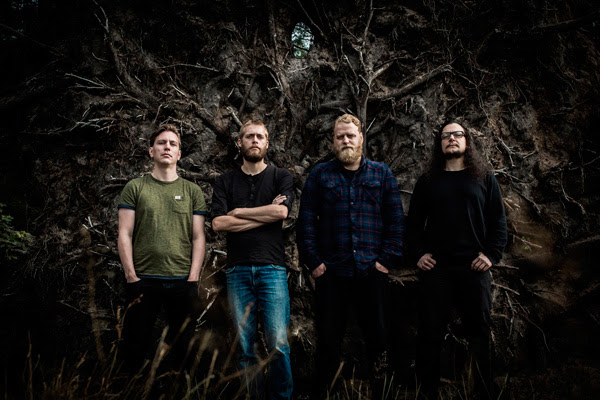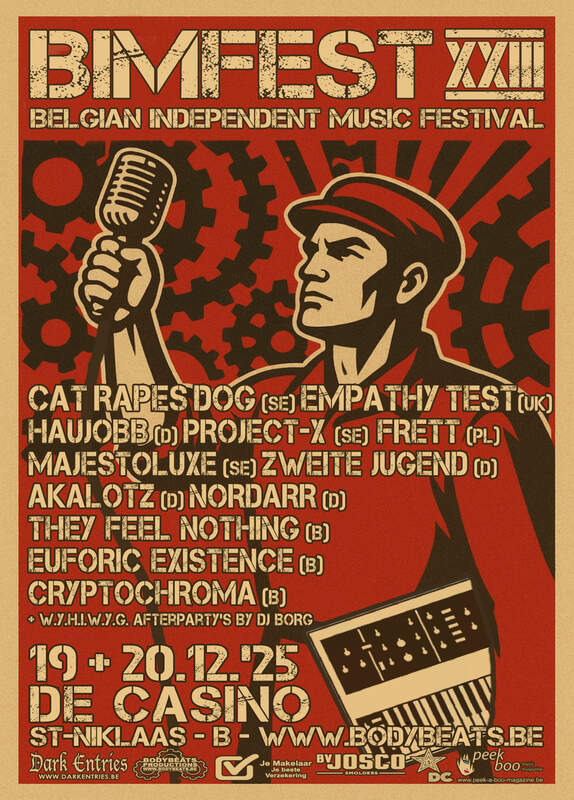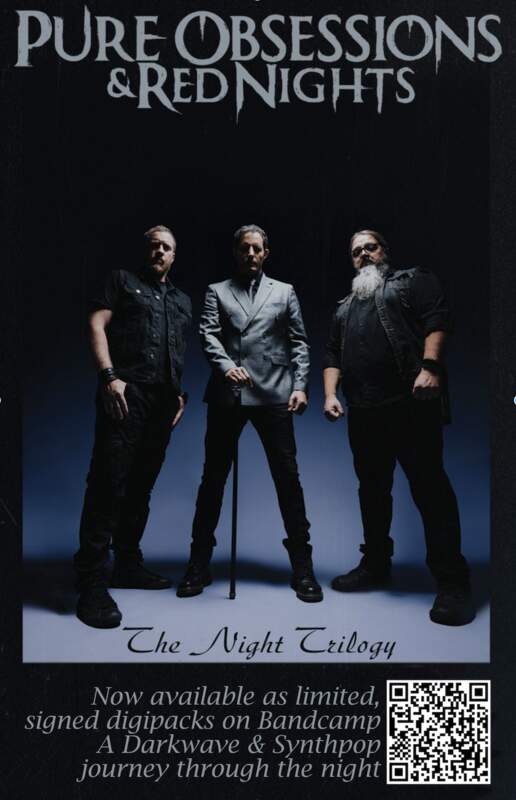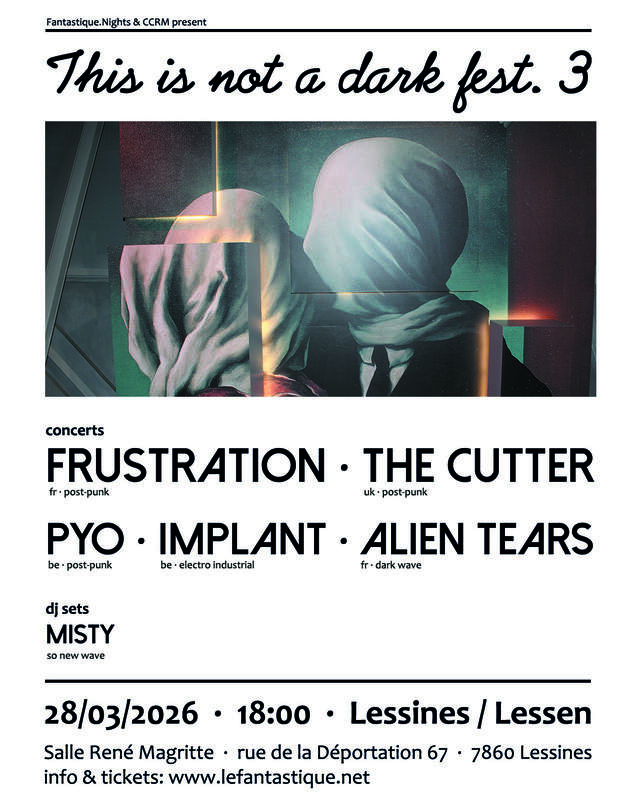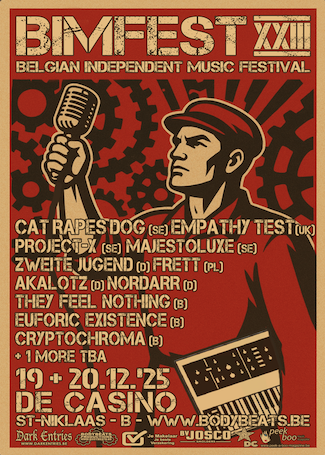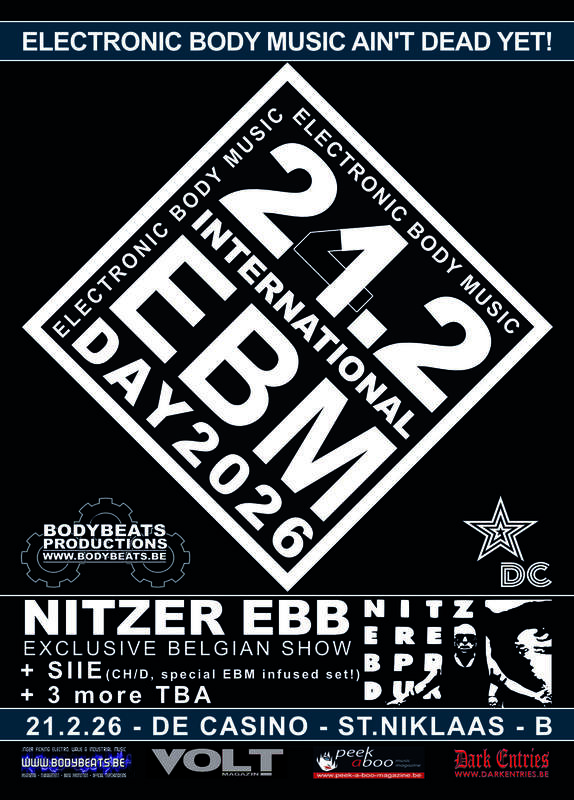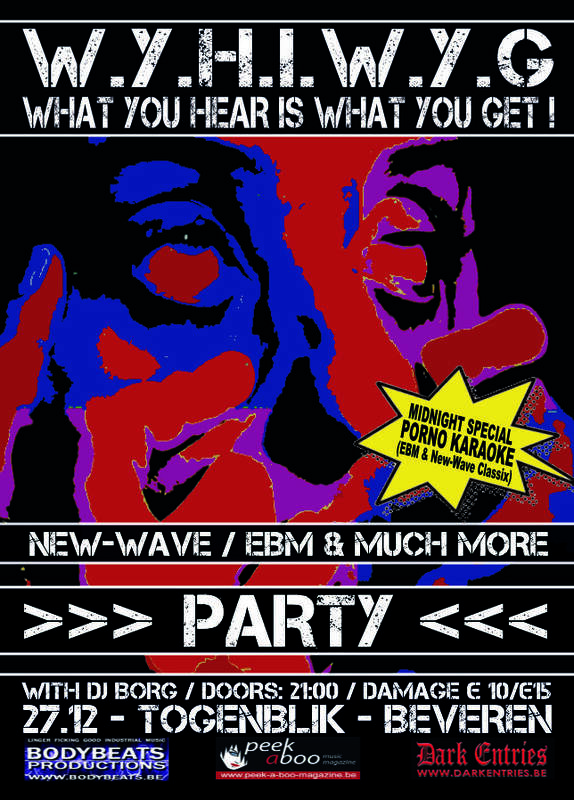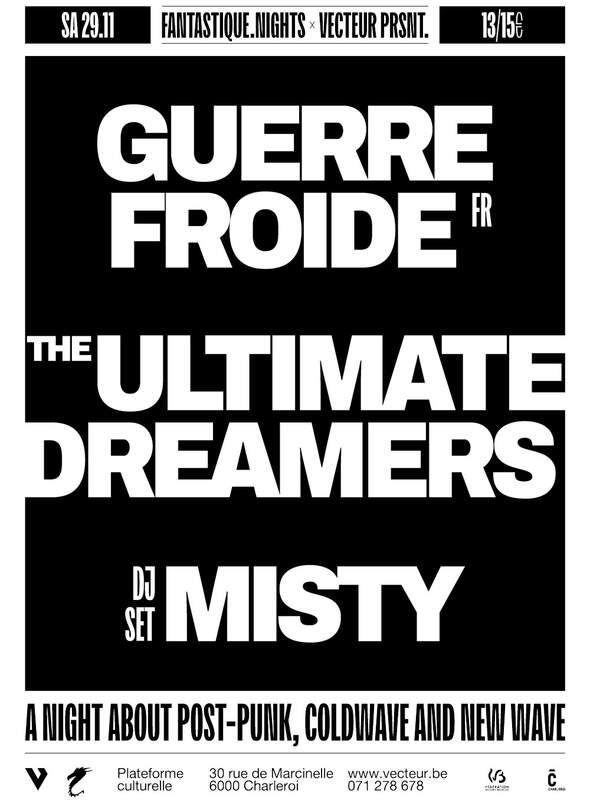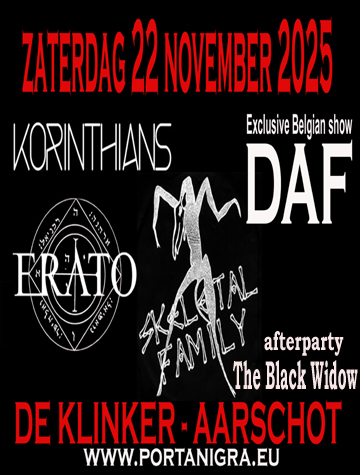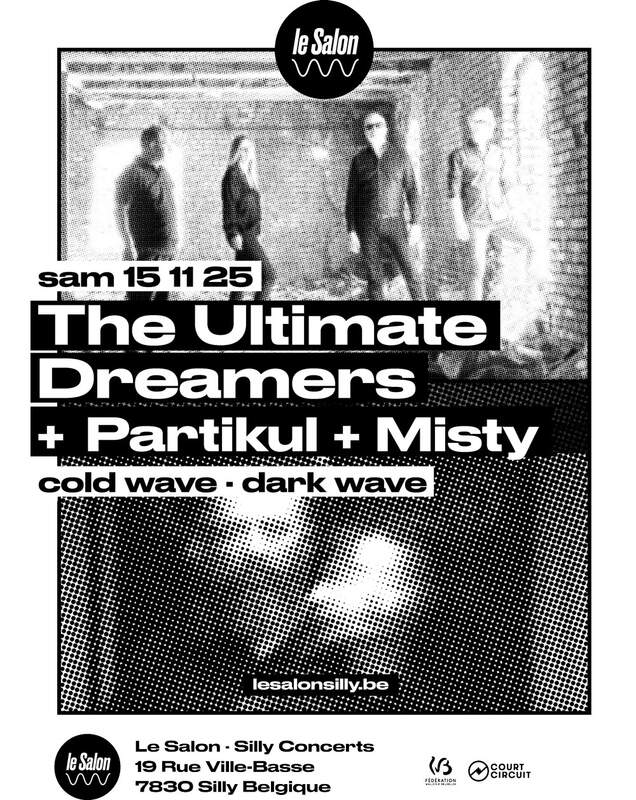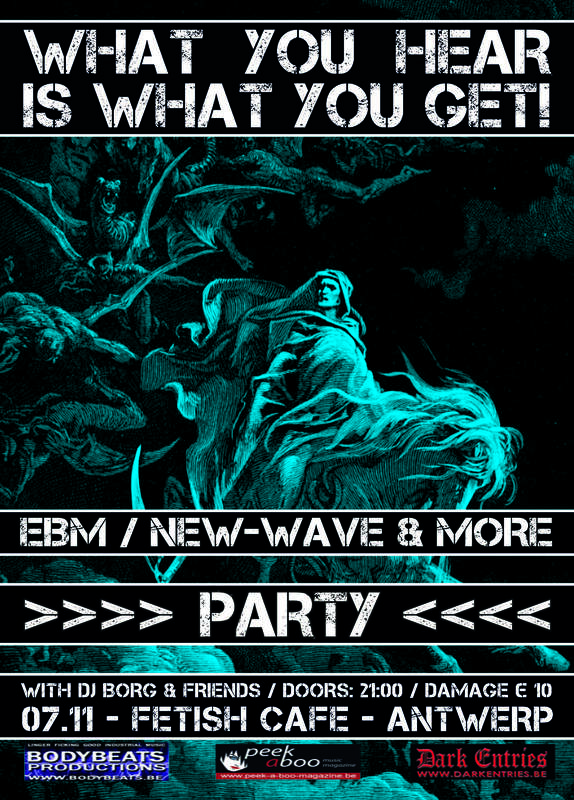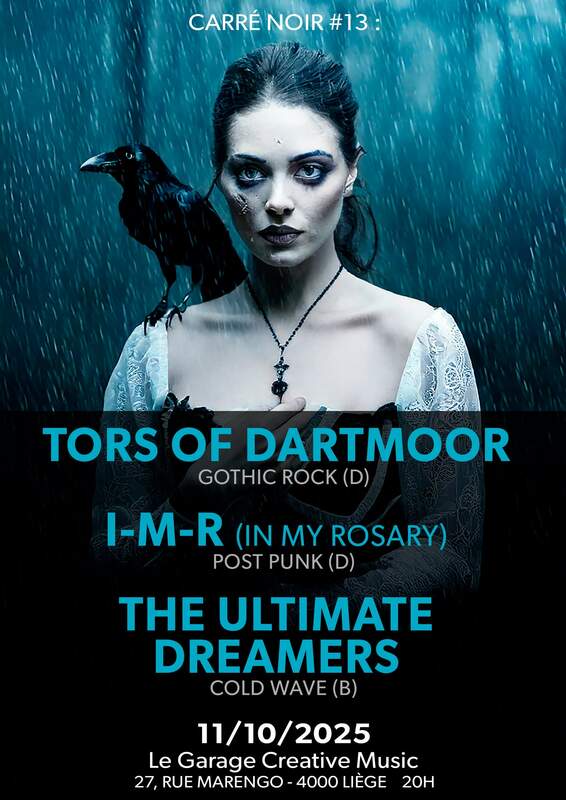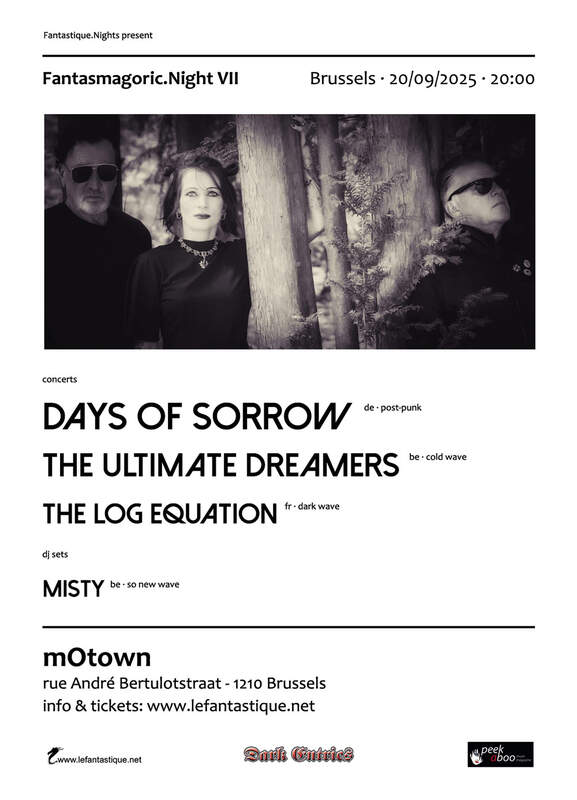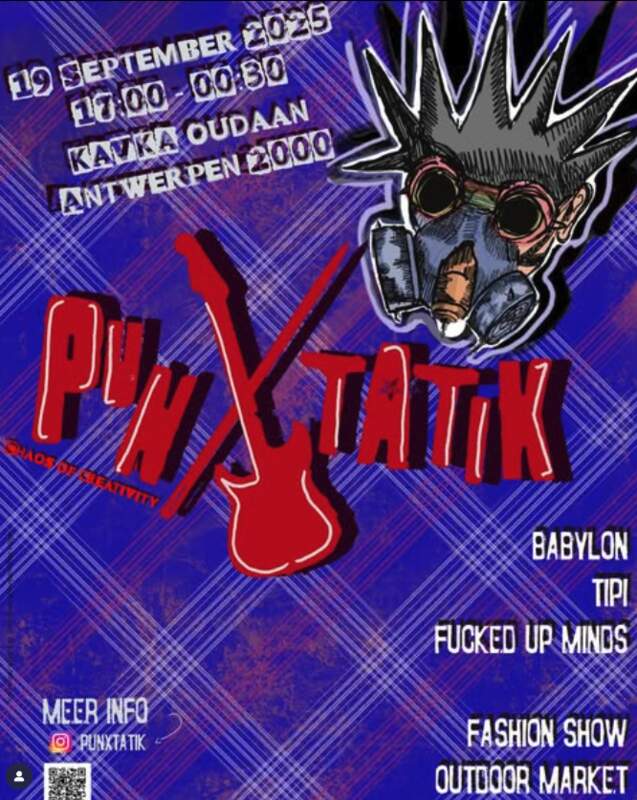
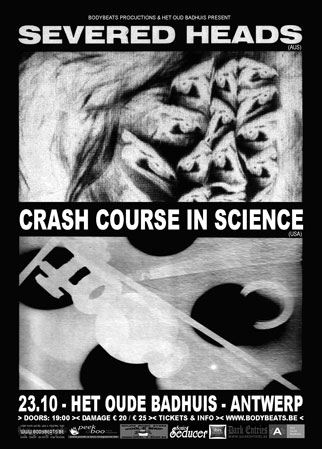
Electro pioneers and cult bands Severed Heads and Crash Course Science sharing stages this weekend!
Two of the most legendary avant-garde Electro-Industrial bands, Severed Heads (Australia) and Crash Course In Science (USA) are currently touring Europe which is already an unique event. But i becomes even more unique when the tour schedule of both bands collides and both bands end up on the same stage on the same night! Such is the case tonight at the Amsterdam Dance Event and tomorrow at a BodyBeats night in Antwerp.
Crash Course In Science was founded in 1979 in Philadelphia and has developed a completely unique sound, some call tight ‘minimal synth electro techno body wave’. They avoided the sounds of conventional instrumentation by using toy instruments and kitchen appliances to augment the distorted guitar, drums and synthesized beats.
Their most know artefact is of course the 12” ‘Signals from Pier Thirteen’ with dance-floor-filler-songs like ‘Card Board Lamb’ and ‘Flying Turns’. CCIS has been touring again since a couple of years but EU shows are rather rare so don’t miss out!
Severed Heads from Sydney, Australia is also founded in 1979 and are important because they more or less invented the whole industrial-electronic cross-over genre. Apparently they were influencers on NIN and Skinny Puppy. At times they sounded like New Order, Erasure and Throbbing Gristle all ran into each other in a blender and then were poured over some ear splitting noise. Some of the best know songs are the dark and gloomy but more accessible New Wave club classic track ‘The Ant Cant See Legs’ and ‘Dead Eyes Open’. Severed heads played Europe (Belgium) only twice so no need to say also their passage is quite unique and should not be missed!
22.10 Amsterdam Dance Event
23.10 BodyBeats Night Antwerp

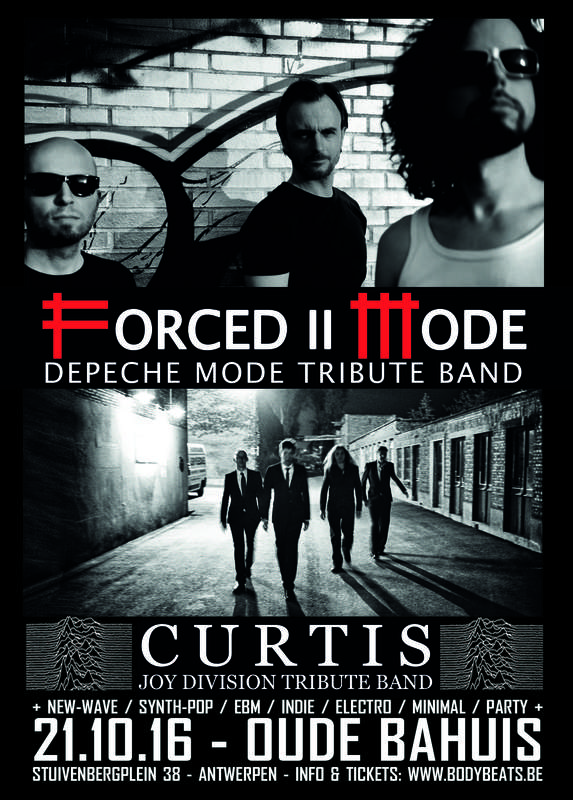
Clash of The Titans II with Forced To Mode (Depeche Mode tribute) & Curtis (Joy Division Tribute) in Antwerp this Friday!
While most Devotees (Depeche Mode Fans) are still licking their wounds, sustained by the battle of tickets for upcoming Depeche Mode Tour in 2017, one of the most respectable Depeche Mode tribute bands Forced To Mode will perform in Antwerp this Friday October 21st.
Forced To Mode already came and conquered De Casino (St-Niklaas, B) earlier this year with a strong and convincing live show, a second Belgian show was just a matter of time. Forced To Mode choose every set-list from a repetoire of more than 50 Depeche Mode classics songs. The music press and even the greatest Devotees admit their live sound is almost impossible to distinguish from the real thing! No wonder Forced To Mode plays almost over 40 lives show a year.
Like on the first Clash of The Titans concept night there will also be another legendary band that will be represented by Curtis. Yes we are talking about Joy Division!! Curtis is a Belgian tribute band who play those Joy Division songs like they were meant to be. Punky and raw! Those amongst you ever listen to Warsaw (the first and original band name of Joy Division) and Joy Division's live recordings will know what me mean. Goosebumbs!
So don’t miss this unique chance to zap yourself back to the dark days of eighties with the best of Depeche Mode and Joy Division blasting out the stage speakers!
More info, video’s & tickets:
www.bodybeats.be
Terwijl de meeste Devotees (Depeche Mode Fans) hun wonden nog likken, opgelopen tijdens de strijd om tickets voor de komende Depeche Mode Tour in 2017 te bemachtigen, zal één van de meest respectabele Depeche Mode tribute bands Forced To Mode in Antwerpen spelen deze vrijdag 21 oktober.
Forced To Mode kwam, zag en overwon al eens eerder dit jaar met een ijzersterke en overtuigende live show in De Casino (St-Niklaas, B). Een tweede Belgische show was dus gewoon een kwestie van tijd. Forced To Mode kiest voor elke set-list uit een repertoire van meer dan 50 Depeche Mode klassiekers. De muziek pers en zelfs de grootste Depeche Mode Devotees moeten toegeven dat hun live geluid bijna niet te onderscheiden is van het echte! Geen wonder dat Forced To Mode jaarlijks meer dan 40 optredens geven.
Net als op de eerste ‘Clash of The Titans’ avond is er ook deze maal een andere legendarische band die zal worden vertegenwoordigd door Curtis. Inderdaad, we hebben het hier over Joy Division! Curtis is namelijk een Belgische Joy Division tribute band die deze songs spelen zoals ze bedoeld zijn. Punky en ruw! Degenen onder jullie die ooit luisterden naar Warsaw (de eerste en originele bandnaam van Joy Division) en/of live-opnames Joy Division zal weten wat wij bedoelen. Kippenvel!
Mis deze unieke kans dus niet om jezelf terug te zappen naar de donkere dagen van de jaren tachtig met het beste van Depeche Mode en Joy Division dat uit de speakers zal knallen!
Meer info, video's & tickets:
www.bodybeats.be
Belgian doom/sludge noisemakers Ortega have just shared a full stream of their forthcoming second full-length “Sacred States” ahead of its release tomorrow via Consouling Sounds.
The album has premiered via Cvlt Nation, who stated “Over the course of five mind-expanding tracks, this band proves that they are carving out their own lane in the doom soundscape. ORTEGA’s music hits you in the places that your humanity is most alive.”
Recorded by John Bart van der Wal (Aborted/Herder) and mastered by James Plotkin, “Sacred States” features guest contributions by Gnaw Their Tongues’ Maurice de Jong and Primitive Man’s Ethan Lee McCarthy and is a collaborative effort between Consouling Sounds (CD), Narshardaa Records (Vinyl) and Tartarus Records (Cassette).
Since 2007, Belgian doom/sludge noisemakers Ortega have been exploring the murky depths of humanity's longing for the horizon. Perilous courses which drag carcasses ashore, sojourns that tell of the bells that chime on the sands below, collisions of doom, sludge and noise that tells tales of abyssal mankind.
Now, the group return with the follow-up to their 2010’s debut album “1634” and in a way “Sacred States” is the first glance upwards. But whereas the depths below are finite, the chasms above ridicule every human attempt to realise itself. Whether he looks above or inside, the void still remains. The tentative grasps into the great unknown will never hold anything but pain, and Ortega recounts every step into the understanding of this fate that we turn away from more often than not.
Recorded by John Bart van der Wal (Aborted/Herder) and mastered by James Plotkin, “Sacred States” features guest contributions by Gnaw Their Tongues’ Maurice de Jong and Primitive Man’s Ethan Lee McCarthy and is set for release on October 5th via a collaborative effort between Consouling Sounds (CD), Narshardaa Records (Vinyl) and Tartarus Records (Cassette).
Der Klinke presents the first Single from the fourth album to be released in 2017.
After 6 years full of blood, sweat and tears, AMBASSADOR21 strikes back with new mind-blowing studio album.
AMBASSADOR21 always balance on the edge, their music is a breaking point, where industrial, hardcore, rhythmic noise and ebm blend together in an unique apocalyptic mix. Celebrating their 15th Anniversary, AMBASSADOR21 dance with wolves and introduce "Human Rage".
"Human Rage" is ten new tracks which will feed your mind and heart and will make you dance. Ten tracks as ten words which AMBASSADOR21 use to describe the present - terror, fear, bigotry, war, money, freedom, action, courage, love, friendship.
From the feeling of an incoming storm in the industrial mid-tempo main title "Human Rage" to the blast of aggression in high-speed hardcore beast "Fear Level Red". From the martial beats and provocative lyrics in Russian and English in "Revelation" to the deep wobble bass and wall of noise in "Metal". From the fighting beats in brutal "Cannibals" to the trap synths in dance floor killer "Scream Your Name". From the fast moving guitar tracks "Do Or Die Time" and "Empire Must Fall" to the dark, cinematic and noisy title "Before We Die". From the straight industrial hammer-beats to the explosion of noise and cold transparent ambience at the end in "Black Dot". It’s hard, it’s catchy, it’s honest. With this new album AMBASSADOR21 do what they do best - blast your brains.
What are the keywords that come in your mind when you listen to "Human Rage"? Terrorism, religion, attitude. "Human Rage" is mature work of adult people with a strong position, who aren’t afraid to draw conclusions and speak out loud on their behalf.
Devaluation of human life. Terrorism, which has become a part of everyday life. Human life as a small coin in the ideological, financial and religious wars. Those are the main motives of "Human Rage". This album is addressed to thinking, open-minded people, who are responsible for their own acts, who ask the right questions and are searching for the right answers; who aren’t afraid to live and are in love with life; who can't imagine life without music.
Did you notice how many times the word “life” was mentioned? Yes, “Human Rage” is a martial dance in the name of life.
Too late to be cool. It's do or die time. Now listen to "Human Rage".


